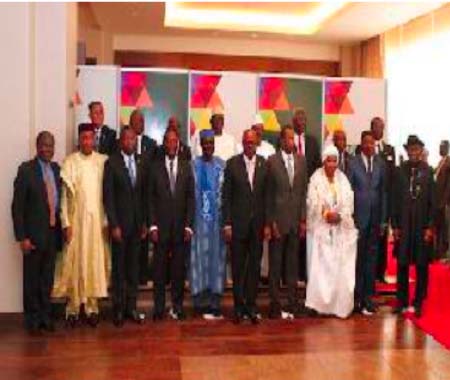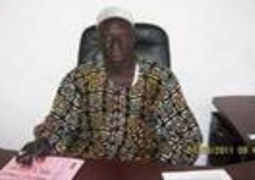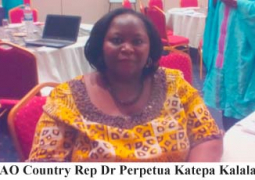
In a communique issued in Accra, Ghana, on Thursday at the end of their one-day summit, ECOWAS leaders declared: “The heads of state and government decisively approve the EPA negotiated and take due account of the technical concerns raised”.
They instructed the West African chief negotiator “to take appropriate steps to begin the process of signing and implementing the agreement”.
The summit stressed “the need for sustained education to create the necessary awareness among the people”.
It described the agreement reached “as fair, balanced and mutually beneficial to ECOWAS and the European Union (EU)”.
It welcomed the ad hoc committee set up at the last ECOWAS meeting to consider the technical issues raised by some member states, and whose recommendations led to solutions to the issues.
The one-day summit discussed the interim report presented by the ECOWAS Commission’s President.
Sectoral policies
The summit, among other things, reaffirmed its decision to work at attaining food security, develop infrastructure and advance human development.
ECOWAS leaders also said there is a positive outlook of regional growth achieved during the first half of this year, and urged member states to sustain their efforts of diversification, particularly by strengthening economic, budgetary and financial reforms.
They should also take ownership of the reforms and ensure effective implementation of the regional programmes, with a view to consolidating the achievements.
Resident permits, biometric IDs
The communiqué said ECOWAS also approved the abolition of resident permits, and in their place introduced biometric identity cards for ECOWAS citizens.
It tasked ministers in charge of security in member countries “to review all the necessary implications of the measures, pending the signing of the supplementary acts”.
The ECOWAS authority encouraged member states ‘to sustain the initiatives in order to boost the regional economic integration and economic performance”.
It also tasked the ECOWAS Commission to work with other stakeholders to meet the implementation deadlines.
The Economic Community of West African States (Ecowas) is to introduce a Community Regional Citizens Biometric Identity cards, officials said.
The summit approved the abolition of the residence permit and the introduction of the Biometric Identity Card for the Community citizens and asked the Ministers in charge of Security to review all the security implications.
Ghana’s President John Mahama has described the move as welcome because “our people must be able to move freely in West Africa and enjoy all the opportunities opening up in our members states”.
“Its biometric features should make it easy to carry out any quick verification of identity at anytime and anywhere in the sub-region,” President Mahama said, when he opened the 45th ordinary session of the Ecowas heads of state Thursday.
Single currency
On the ECOWAS single currency, the Summit endorsed the recommendations on the convergence criteria, the streamlining of the institutions and the revised roadmap with a specific indication of the institutions in charge of its implementation.
They welcomed the actions implemented in line with the different roadmaps adopted, particularly by ensuring that the ECOWAS-Common External Tariff (CET) comes into force and Monetary Union attained by 2020.
The identity card together with the implementation of a Common External Tariff (CET) regime on 1 January 2015, are likely to speed up the integration of the region.
President Mahama said, the implementation of the CET, which was intended to integrate customs and duties, would help reduce delays at the borders.
Illegal checkpoints
He was hopeful that member states and officials of the ECOWAS Commission would push the CET agenda in order to ensure importers in the region were “well informed to become strong advocates and stakeholders in the implementation of the common external tariff”.
CET has four tariff bands or rates of custom duty: nil per cent for essential goods, goods of primary nature including raw materials, five per cent, intermediate products, 20 per cent and final consumption products, 20 per cent.
He urged members states, particularly, border officials “to take all the legal and necessary steps to remove all challenges or bottlenecks to trade and commercial activities within our region”, adding that, “the lingering difficulties that many enterprising West Africans citizens face in doing business across our borders must be addressed”.
“Some of our business men and women complain that in addition to paying all the relevant duties and levies, they are still confronted with situations and hindrances that often make it prohibitive for them to do business within our region,” President Mahama said.
He mentioned some of the obstacles as, “the multiplicity of legal and illegal checkpoints and barriers, lengthy inspection times and documentation requirements, plus costly delays-regardless of whether documentation is complete or not”.
ECOWAS Commission president Kadre Ouedraogo in presenting his report called for an increase in the rate and volume of trade among member states in the sub region.
He said this would empower efforts to reach full inter-regional trade integration in West Africa.
“The needful increase of inter-regional trade will not be possible without a full application of the protocols on the free movement of persons and goods and strengthening regional infrastructure”, among others, he said.
Ouedraogo further appealed to development partners to continue supporting the bloc on the basis of its priorities, in the efforts ECOWAS deployed to consolidate and amplify its attainments and to face new challenges.
Ghana President and ECOWAS Chairman, John Mahama, meanwhile urged the commission and member states to advocate for the implementation of the Common External Tariff.
He noted plans were far advanced to kick-start its operation in January next year.
“I wish therefore to take this opportunity to urge the ECOWAS Commission and member states to ensure that, all ECOWAS citizens, especially importers, are well informed to become strong advocates and stakeholders in the implementation of the Common External Tariff,” Mahama said.
Ebola virus disease
The Summit considered updates on the security situation in the sub-region and explored ways to contain the deadly Ebola virus, which has killed more persons in Guinea, Liberia and Sierra Leone in recent weeks.
The authority directed the ECOWAS Commission to liaise with the West African Health Organisation (WAHO) to adopt a regional approach towards containing and managing the outbreak of the Ebola disease.
The authority further directed that a solidarity fund be established to fight the disease.
Nigeria was commended for contributing $3 million to be shared among Guinea ($1 million), Liberia ($500,000), Sierra Leone ($500,000), WAHO ($500,000) and the ECOWAS Pool Fund for Ebola ($1 million).
The summit urged other member states to make similar contributions.
Peace and security issues
The communique took note of the progress made in the political situation in Guinea Bissau which led to the election and swearing-in of a new president, as well as the consolidation of peace and security in other member states.
It expressed sympathy with Nigeria over the Boko Haram issue, and noted that ECOWAS would continue to support Nigeria to uproot the problem.
Read Other Articles In Article (Archive)
NAS FC thrash Santos United FC in Gunjur Nawettan
Sep 23, 2011, 4:03 PM

Governor expresses disappointment over Lower Saloum by-election defeat
Aug 10, 2015, 12:49 PM



